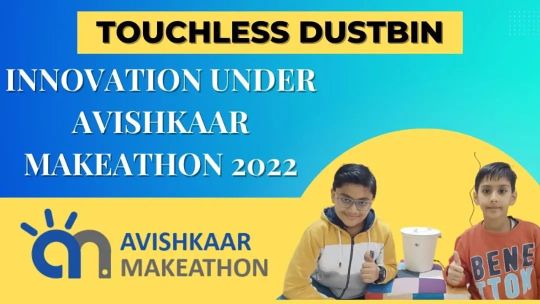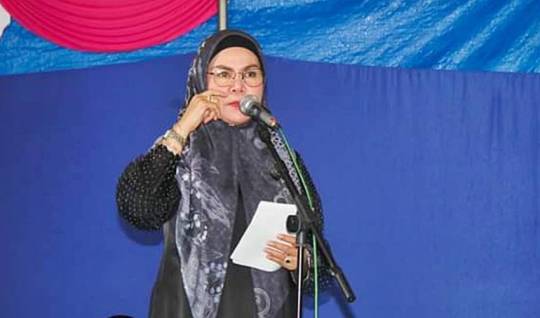#SocialWelfare
Text
Alternatives to Capitalism
Identifying economic systems that may be considered better than capitalism depends on the criteria used for comparison, such as equity, sustainability, and overall societal well-being. Here are some alternative systems, each with its potential benefits and drawbacks:
1. Social Democracy
Description:
A political, social, and economic philosophy within a capitalist framework that emphasizes social justice, government intervention, and the welfare state.
Benefits:
Equity: Strong focus on reducing inequality through progressive taxation and wealth redistribution.
Welfare: Comprehensive social safety nets, including healthcare, education, and unemployment benefits.
Regulation: Strict regulations on businesses to protect workers, consumers, and the environment.
Drawbacks:
Economic Efficiency: Potentially higher taxes and regulation can impact business incentives and economic efficiency.
Government Size: Large government programs may lead to bureaucratic inefficiencies.
Examples:
Scandinavian countries like Sweden, Norway, and Denmark.
2. Democratic Socialism
Description:
A political philosophy that advocates for political democracy alongside social ownership of the means of production, extensive welfare programs, and economic planning.
Benefits:
Social Ownership: Emphasis on worker cooperatives and public ownership can lead to more equitable wealth distribution.
Democratic Control: Democratic decision-making processes in economic planning aim to meet the needs of the majority.
Social Welfare: Extensive welfare programs ensure basic needs are met for all citizens.
Drawbacks:
Economic Efficiency: May face challenges in innovation and efficiency due to reduced profit motives.
Implementation: Transitioning to this system can be difficult and disruptive.
Examples:
Elements found in policies proposed by some political parties and movements in various countries, though not fully implemented anywhere on a national scale.
3. Eco-Socialism
Description:
A blend of socialism and environmentalism, focusing on social ownership and ecological sustainability.
Benefits:
Sustainability: Prioritizes environmental health and sustainable development.
Social Equity: Combines social ownership with efforts to reduce inequality.
Community Focus: Emphasizes local, decentralized economies and participatory democracy.
Drawbacks:
Economic Growth: May limit economic growth due to stringent environmental regulations.
Scalability: Localized economies may struggle to scale and integrate into global markets.
Examples:
Green political movements and policies, though not fully implemented as a national system.
4. Participatory Economics (Parecon)
Description:
An economic system based on participatory decision-making, worker and consumer councils, and equitable distribution of resources.
Benefits:
Democracy: Emphasizes direct participation in economic decision-making.
Equity: Focus on equitable distribution of income and resources.
Efficiency: Aims to align production with social needs and reduce waste.
Drawbacks:
Complexity: Requires significant coordination and participation, which can be challenging on a large scale.
Transition: Moving from a capitalist system to Parecon would be complex and require significant societal changes.
Examples:
Theoretical and has not been implemented on a large scale, but certain cooperative movements and local experiments reflect its principles.
5. Commons-Based Peer Production
Description:
An economic system that emphasizes collaborative, decentralized production, often facilitated by digital platforms, and focuses on shared resources (the commons).
Benefits:
Innovation: Encourages open collaboration and innovation.
Sustainability: Reduces resource waste through shared use and collaborative consumption.
Empowerment: Empowers individuals and communities through direct participation and control over production.
Drawbacks:
Monetization: Can struggle with monetizing contributions and ensuring fair compensation.
Scalability: May face challenges in scaling beyond certain sectors, especially those not easily digitized.
Examples:
Open-source software projects, Wikipedia, and other collaborative platforms.
Conclusion
Each of these systems offers alternative approaches to address some of the shortcomings of capitalism, such as inequality, environmental harm, and exploitation. However, they also come with their own set of challenges and trade-offs. The best system may involve a hybrid approach, incorporating elements from various systems to balance economic efficiency, social equity, and environmental sustainability.
#philosophy#knowledge#learning#chatgpt#education#economics#capitalism#EconomicSystems#AlternativeEconomies#SocialDemocracy#DemocraticSocialism#EcoSocialism#ParticipatoryEconomics#CommonsBasedEconomy#SustainableEconomy#EquitableEconomy#EconomicInequality#SocialWelfare#WorkerCooperatives#EnvironmentalSustainability#ProgressiveTaxation#EconomicPlanning#GovernmentIntervention#SocialOwnership#EconomicInnovation#EconomicEfficiency#HybridEconomies
5 notes
·
View notes
Text
Thoughts on Emmanuel Macron
Emmanuel Macron is a French politician serving as the President of France since 2017.

Introduction: As an observer of French politics, it is with deep concern and disappointment that I express my dissatisfaction with the leadership of Emmanuel Macron. Despite initial promises of reform, progress, and a new era of politics, Macron's tenure as President of France has been marred by numerous shortcomings and a failure to live up to the expectations set by his campaign. In this post, I will outline some key areas where Macron's leadership has fallen short, leaving many citizens disenchanted and disillusioned. During the 2022 French Presidential elections I wanted Marine Le Pen to win. In the near future. I shall do a post of support for Marine Le Pen.
Elitism and Disconnect: One of the most glaring issues with Macron's leadership is his perceived elitism and disconnect from the everyday struggles of ordinary citizens. His background in finance and his association with the wealthy elite have often overshadowed his ability to relate to and understand the challenges faced by the working class and marginalized communities. This disconnect has bred resentment and further exacerbated the societal divide.
Economic Inequality: Despite claims of economic reform, Macron's policies have failed to address the persistent issue of economic inequality in France. The burden of economic reforms, such as tax cuts for the wealthy and labor market reforms, have fallen disproportionately on the middle and lower classes, while the rich continue to benefit. This approach has widened the wealth gap and contributed to growing social unrest.
Lack of Social Welfare: Macron's presidency has been marked by a perceived lack of attention to social welfare. From the controversial pension reforms to inadequate measures to address poverty and inequality, Macron's policies have often left vulnerable groups behind. The erosion of social safety nets and the failure to adequately address pressing social issues have created a sense of neglect among those who rely on the government for support.
Authoritarian Tendencies: While presenting himself as a progressive and centrist leader, Macron has displayed authoritarian tendencies during his tenure. The heavy-handed response to protests, attempts to curtail freedom of speech, and a perceived disregard for dissenting voices have raised concerns about the erosion of democratic values and the stifling of political discourse. Macron's approach to governance has been marked by a top-down decision-making style that undermines the principles of inclusivity and participatory democracy.
Climate Change Inadequacies: Despite championing himself as a leader committed to addressing climate change, Macron's actions have fallen short of the urgent and ambitious measures needed to combat this global crisis. France's progress in reducing greenhouse gas emissions has been slow, and significant environmental concerns such as deforestation and biodiversity loss have not received the necessary attention. Macron's rhetoric on the environment has often surpassed tangible actions.
Conclusion: Emmanuel Macron's presidency has been marked by a series of disappointments and unfulfilled promises. From a perceived elitism and disconnect from ordinary citizens to a failure to address economic inequality and social welfare concerns, Macron's leadership has left many feeling neglected and disillusioned. Furthermore, his authoritarian tendencies and inadequate response to the climate crisis raise questions about his commitment to democratic principles and the well-being of future generations. France deserves a leader who can bridge divides, prioritize social justice, and genuinely address the pressing challenges of our time.
#EmmanuelMacron#FrenchPolitics#LeadershipFailures#Elitism#EconomicInequality#SocialWelfare#Authoritarianism#ClimateChange#DemocraticValues#Disillusionment#PoliticalDiscourse#today on tumblr#marine le pen#emmanuel macron#france#european union#french politics#FrenchPresident#PolicyFailures#SocialJustice#ProtestResponse#PoliticalReform#IncomeInequality#GovernmentAccountability#EnvironmentalConcerns#PublicDiscontent
2 notes
·
View notes
Photo

Innovation by my son Anikait and his friend under Avishkaar Makeathon 2022 https://youtu.be/Y6uPTiOILQk Kindly like, share and support with your comments to help them win the competition. Thanking you all in advance. 🙏 #avishkaarmakeathon #avishkaar #makeathon #makeathon2022 #creatoranikait #touchless #touchlessdustbin #techforsocialgood #techforgood #techforwaste #madeininda #innovativekids #smartdustbin #techforkids #techfordisabilities #socialwelfare #wastemanagement #smartidea #kidsinnovation #kidsinnovationchallenge #innovation #tech #electric #electricdustbin #innovate #innovateindia #techforlife #techlife #divyang #differentlyabled https://www.instagram.com/p/CmRqlo_yiVe/?igshid=NGJjMDIxMWI=
#avishkaarmakeathon#avishkaar#makeathon#makeathon2022#creatoranikait#touchless#touchlessdustbin#techforsocialgood#techforgood#techforwaste#madeininda#innovativekids#smartdustbin#techforkids#techfordisabilities#socialwelfare#wastemanagement#smartidea#kidsinnovation#kidsinnovationchallenge#innovation#tech#electric#electricdustbin#innovate#innovateindia#techforlife#techlife#divyang#differentlyabled
2 notes
·
View notes
Text
ஏழைகளுக்கு மேலும் 2 கோடி இலவச வீடுகள்…
youtube
#obcrights#sfrbc#bjp#tamilnadu#india#nda#politics#poorpeople#dmk#congress#admk#naamtamilar#seeman#PMModi#FreeHouses#SocialWelfare#HousingForAll#GovernmentScheme#Cabinet3_0#WelfareInitiative#இலவச_வீடுகள்#Youtube
0 notes
Text
"Charitable Hospital in Gujarat: A Comprehensive Guide to Jhulelal Hospital's Services and Impact"
"Explore the extensive services, community initiatives, and remarkable impact of Jhulelal Hospital, a leading charitable hospital in Gujarat dedicated to providing quality healthcare to all. Discover how this institution is transforming lives and contributing to a healthier society."
Jhulelal Hospital, a prominent charitable hospital in Gujarat, stands as a beacon of hope and healing for countless individuals in the region. This esteemed institution has earned a stellar reputation for its unwavering commitment to providing quality healthcare to all, regardless of their financial status. Over the years, Jhulelal Hospital has not only excelled in medical care but has also become a pivotal player in community health initiatives, educational programs, and social welfare projects. This comprehensive guide delves into the myriad facets of Jhulelal Hospital, exploring its services, community impact, and the stories of those whose lives have been transformed by its compassionate care.
At its core, Jhulelal Hospital embodies the ethos of a charitable hospital in Gujarat. The facility is equipped with state-of-the-art medical technology and staffed by highly skilled professionals who are dedicated to the hospital's mission of delivering accessible healthcare. From routine check-ups to complex surgical procedures, the hospital offers a wide range of medical services. Specialties include cardiology, neurology, orthopedics, pediatrics, oncology, and more. Each department is led by experts who are not only proficient in their fields but also deeply committed to the well-being of their patients.
One of the standout features of Jhulelal Hospital is its emphasis on patient-centered care. The hospital's approach ensures that every patient receives personalized attention and treatment plans tailored to their specific needs. This compassionate care extends beyond the hospital's walls, with numerous outreach programs designed to serve the broader community. Mobile health clinics, free health camps, and awareness campaigns are just a few examples of how Jhulelal Hospital takes healthcare to the doorsteps of those in need, particularly in rural and underserved areas.
Education and training are also integral components of Jhulelal Hospital's mission. The hospital runs several educational initiatives aimed at enhancing the skills of healthcare professionals and educating the public on health-related issues. These programs include continuing medical education (CME) for doctors, nursing training programs, and workshops for paramedics. Additionally, public health seminars and awareness campaigns play a crucial role in empowering the community with knowledge about preventive healthcare measures, disease management, and healthy lifestyle choices.
The impact of Jhulelal Hospital as a charitable hospital in Gujarat extends into social welfare. The hospital partners with various non-governmental organizations (NGOs) and government bodies to implement projects that address the social determinants of health. These initiatives focus on areas such as sanitation, nutrition, maternal and child health, and mental health. By addressing these broader social issues, Jhulelal Hospital contributes to the overall improvement of public health and quality of life in the region.
Financial assistance programs are another critical aspect of Jhulelal Hospital's operations. Understanding that many individuals in Gujarat may face financial barriers to accessing healthcare, the hospital offers subsidized treatments and financial aid to those in need. This support ensures that no one is denied essential medical care due to their economic circumstances. The hospital's commitment to inclusivity and equity is evident in its efforts to make healthcare affordable and accessible to all segments of society.
The stories of patients who have benefited from Jhulelal Hospital's services are a testament to the institution's profound impact. From life-saving surgeries to chronic disease management, countless individuals have experienced significant improvements in their health and quality of life thanks to the hospital's expert care. These personal narratives highlight the dedication and compassion that define Jhulelal Hospital's approach to healthcare.
Jhulelal Hospital also plays a crucial role in responding to public health emergencies. During outbreaks of diseases or natural disasters, the hospital's emergency response teams are on the front lines, providing critical care and support to affected communities. The hospital's preparedness and swift action in times of crisis have been instrumental in mitigating the impact of such events on public health.
The vision for the future of Jhulelal Hospital is one of continued growth and expansion. Plans are in place to enhance existing facilities, introduce new specialties, and expand outreach programs to reach even more individuals in need. The hospital's leadership is committed to staying at the forefront of medical advancements and ensuring that the institution remains a leader in charitable healthcare in Gujarat.
In conclusion, Jhulelal Hospital exemplifies what it means to be a charitable hospital in Gujarat. Its comprehensive medical services, community initiatives, educational programs, and social welfare projects collectively create a holistic approach to healthcare. By prioritizing accessibility, inclusivity, and compassion, Jhulelal Hospital continues to make a significant difference in the lives of countless individuals and communities. As the hospital looks to the future, its unwavering commitment to its mission promises to bring even greater positive change to the region.
Address: R.K. Avenue zadeshwar shukaltirth road, Zadeshwar chokdi,Bharuch-392011,Gujarat
Call: 7359118800
E-mail: [email protected]
Visit: https://jhulelalhospital.org/
#CharitableHospital#GujaratHealthcare#JhulelalHospital#CommunityHealth#AccessibleHealthcare#MedicalExcellence#PatientCare#HealthcareForAll#HealthInitiatives#SocialWelfare#MedicalEducation#PublicHealth#EmergencyResponse#HealthcareImpact#InclusiveHealthcare#HealthyCommunities#MedicalOutreach#PatientStories#HealthcareFuture#QualityHealthcare
0 notes
Text
youtube
#SocialServicesFailures#WelfareCrisis#GovernmentAccountability#SocialJustice#PovertyAwareness#CommunitySupport#PublicServices#SocialWelfare#HumanitarianCrisis#Advocacy#Inequality#SocialSafetyNet#PublicServiceFailures#WelfareSystem#GovernmentIncompetence#youtube#small youtuber#Youtube
0 notes
Text
Unlock the full potential of government assistance with 'Sarkari Yojana: Benefits, Eligibility & Application Process' on indiatechmitra.com. This comprehensive guide demystifies the plethora of government schemes available to citizens of India, offering detailed insights into the benefits they provide, who can apply, and the step-by-step process to enroll. From social welfare and healthcare to education and housing, learn about the diverse array of schemes designed to support various segments of the population. Whether you're seeking financial aid, educational opportunities, or healthcare services, our article equips you with the necessary knowledge to navigate the application process smoothly. Get informed about documentation requirements, application deadlines, and tips for successful enrollment. Empower yourself with the knowledge to take full advantage of the Sarkari Yojana benefits tailored to meet the needs of the Indian populace. #SarkariYojana #GovernmentSchemes #India #SocialWelfare #Healthcare #Education #Housing #FinancialAid #ApplicationGuide #Indiatechmitra
#SarkariYojana#GovernmentSchemes#India#SocialWelfare#Healthcare#Education#Housing#FinancialAid#ApplicationGuide#Indiatechmitra
0 notes
Text

Massive Progress: 2.5 Lakh Houses Allocated to Beneficiaries in Uttar Pradesh by 2023-24
A amazing report from Uttar Pradesh! By 2023–2024, more than 2.5 lakh homes would have been distributed to suitable buyers. The achievement shows how dedicated the government is to raising the standard of living for its people and increasing housing accessibility.
An important step toward better living standards is this effort, which attempts to give individuals in need access to cheap housing.
For more information -
Visit: Belpatram Infratech Pvt. Ltd.
Contact Us: 8744000006
#UttarPradesh#AffordableHousing#Progress#Development#HousingForAll#Infrastructure#SocialWelfare#belpatraminfratech
0 notes
Text
Merlan Urges Technical Agencies to Combat Extreme Poverty Beyond Meeting Reports
Merlan Urges Technical Agencies to Combat Extreme Poverty Beyond Meeting Reports
#ExtremePovertyCombat #TechnicalAgencies
Hargo.co.id, GORONTALO – Acting Regent of Bone Bolango, Merlan Uloli, emphasizes the need for technical agencies not only to pursue the fulfillment of financial reports (SPJ) but also to actively combat extreme poverty.
Merlan made this statement while leading a coordination and evaluation meeting (Rakorev) for the acceleration of extreme poverty eradication (PPKE) held at the regent’s official…

View On WordPress
#Bonebolango#CoordinationMeeting#ExtremePovertyCombat#InnovationForProgress#MerlanUloli#PovertyEradication#SocialWelfare#TechnicalAgencies
0 notes
Text
सरकारी योजनाओं का लाभ जनता के लिए वरदान
वित्त मंत्री निर्मला सीतारमण ने शुक्रवार को 2014 में शुरू की गई प्रधानमंत्री जन-धन योजना की सराहना की। वित्त मंत्री ने कहा कि यह योजना (पीएमजेडीवाई) देश में वित्तीय समावेशन लाने के सबसे बड़े साधन के रूप में उभरी है।
#GovernmentSchemes#PublicBenefits#SocialWelfare#BoonForPublic#GovernmentInitiatives#CommunitySupport#PublicWelfare#CitizenEmpowerment#GovernmentAid#SocioeconomicDevelopment
0 notes
Text
Labor Organizer Spotlight, Charles S Zimmerman
#LaborOrganizerSpotlight Charles S. Zimmerman
Charles Sasha Zimmerman was born in Russia in 1897. He arrived in the United States in 1913 and soon found work in garment shops. His career with the ILGWU began in 1916 when he went to work in a waist shop and joined Local 25. By 1925, Zimmerman was a member of the Executive Board for Dressmakers' Local 22. Throughout the 1920s, Zimmerman was an active member of the Communist Party, an affiliation that cost him his leadership positions within the union in 1925. He was involved with the bitter Communist infighting, and though he initially belonged to the Communist Party, he soon saw that they subverted the strike of 1926 for its own purposes which nearly decimated the ILGWU. With other members now opposed to Communism, Zimmerman worked to rid the Communist influence from the union and help reorganize the dress industry with his reinstatement in 1931. Even after his reinstatement in the ILGWU, he maintained close ties with the anti-Stalinist Lovestonites of the Communist Party.
Zimmerman was elected manager of Local 22 in 1933, and the next year became a vice president of the ILGWU. He became general manager of the New York Dress Joint Board and the Dressmakers' Joint Council in 1958. Zimmerman was involved with civil rights, social welfare and international labor organizations throughout his career. He was a trustee of the National Urban League, chairman of the Jewish Labor Committee's National Trade Union Council for Human Rights, and a member of New York City's first Human Rights Commission. Zimmerman helped found the Inter-American Federation of Textile and Garment Workers in 1966 and served as a U.S. representative to the International Textile, Garment and Leather Workers Federation. In 1969, Zimmerman was elected president of the Jewish Labor Committee and named to the Civil Rights and Social Security committees of the AFL-CIO. He resigned as a union vice president and general manager of the Dress Joint Council and New York Dress Joint Board in 1972. Zimmerman died in 1983.
Each #LaborOrganizerSpotlight is designed to highlight historical figures who have participated significantly in the labor/labor organizing movement who are also featured in our collections. To learn more about Charles Zimmerman visit https://rare.library.cornell.edu/finding-aids-for-archival-and-manuscript-collections/ and search #5780/014 P.

A photo of Charles Zimmerman.

Charles Zimmerman, Luigi Antonini, and David Dubinsky in Labor Day parade, 1960.
#cornellrad#kheelcenter#cornell university#laborhistory#ilgwu#archives#history#laborarchives#laboractivist#socialwelfare#civilrights#internationallabor#charleszimmerman#jewish#daviddubinsky#luigiantonini
1 note
·
View note
Text
FAMILY LEGISLATION
Summary
The article discusses the social protection laws and regulations in Yugoslavia for pregnant women and nursing mothers. These laws provide a number of important benefits and protections, including paid leave, shortened work hours, and access to childcare.
Pregnant women are entitled to 90 days of leave for the purpose of delivery, which may start 45 days before delivery or at least 21 days before it. They are also entitled to their regular salary and permanent allowance during their pregnancy leave.
Nursing mothers are entitled to interrupt their work every three hours to nurse their child. They may also be granted shortened work hours of 4 hours a day, or paid leave of 15 days in case of acute disease of their child.
In addition, women after the fourth month of pregnancy and mothers nursing their children are forbidden overtime and night work for 8 months, or 12 months if so advised by the doctor. They are also not allowed to be sent to work temporarily away from the place of their permanent employment.
The article also discusses the cash grant that is paid to mothers with two or more living children. This grant can help to offset the costs of raising children, and it can provide much-needed financial assistance to families.
Overall, the article provides a comprehensive overview of the social protection laws and regulations in Yugoslavia for pregnant women and nursing mothers. These laws and regulations provide a strong foundation for supporting families and children, and they help to ensure that all families have the opportunity to thrive.
Here are some of the key takeaways from the article:
Pregnant women and nursing mothers are entitled to a number of important benefits and protections, including paid leave, shortened work hours, and access to childcare.
These laws are essential to ensuring the health and safety of pregnant women and mothers nursing their children, and they help to ensure that they have the time and energy to care for their families.
The laws also provide for a cash grant to be paid to mothers with two or more living children. This grant can help to offset the costs of raising children, and it can provide much-needed financial assistance to families.
#socialprotection#pregnantwomen#nursingmothers#familybenefits#socialwelfare#Yugoslavia#womensrights#childcare#worklifebalance#familyfriendly
0 notes
Text
Telangana bc bandhu 1 lakh scheme online apply and application download and documents requirements.
#TelanganaBCBandhu#1LakhScheme#OnlineApply#ApplicationDownload#DocumentsRequired#FinancialAssistance#TelanganaGovernment#SocialWelfare#FinancialSupport#Empowerment
0 notes
Link
Get ready to dive into an electrifying episode of Resilient Voices & Beyond as we kick off season 3 with an awe-inspiring guest, Gabriella Mallory! Gabriella's reputation precedes her as a trailblazing leader in the field of child welfare advocacy and policy, peer support, innovation, and social work. As a true visionary, she has transformed the lives of countless individuals through her remarkable work. In this episode, we'll get an exclusive peek into Gabriella's personal journey and delve into her unparalleled expertise. Don't miss out on this thrilling conversation that will leave you feeling inspired and empowered!
0 notes